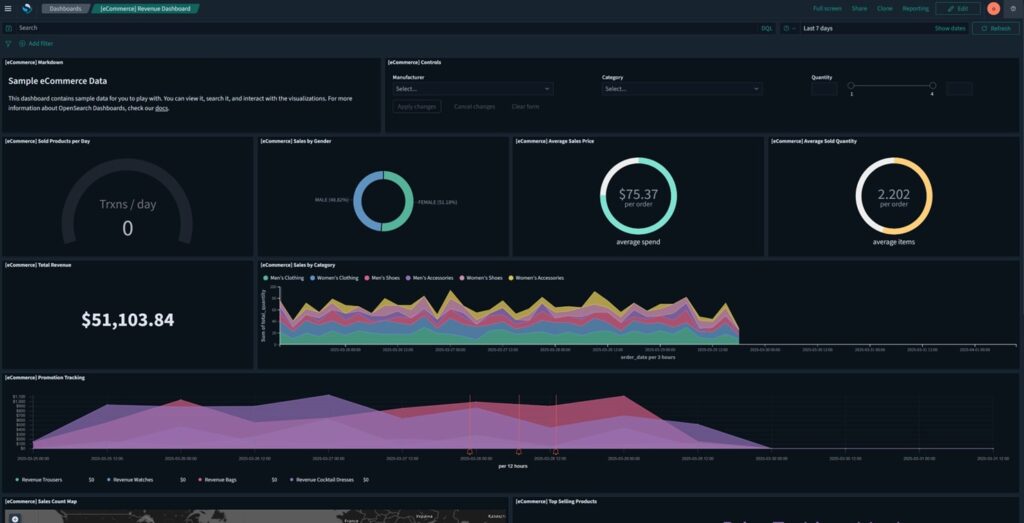Three years after the launch of 2.0, OpenSearch has taken the launch of Apache Lucene 10 as a chance to develop a new major version.
Why the new development? Well, upgrading Lucene to v10 and the JVM to v21 create breaking changes for both the core of OpenSearch as well as APIs that affect plugins and other parts of the OpenSearch ecosystem, such as OpenSearch Dashboards.
Also, anything below Node.js 14 has been deprecated by the Javascript 3.0 client. These moves are, as the OpenSearch maintainers put it, intended to make the project more future proof.
Breaking changes
The following section covers some of the major breaking changes in OpenSearch 3.0: Apache Lucene 10 and JVM 21, and the removal of the Java Security Manager.
Apache Lucene 10 and JVM 21
Apache Lucene is being upgraded to v10. For this and other reasons, the JVM is being updated to a minimum of v21 and will cause some breaking changes in OpenSearch, hence the 3.0 release.
There were also major changes to the Javascript client, including strict parameter naming (no more camelCase!) and some typing system introductions that may cause compatibility issues.
However, these breaking changes also bring powerful new features to the forefront.
In Apache Lucene, there are improvements in both I/O and search parallelism—I/O by adding an API call that allows for asynchronous fetching of data, and search by opting for logical partitions within segments instead of the previous method of segment grouping for parallel searches.
The JVM being updated to a minimum of 21 also brings some major benefits like virtual threads, pattern matching for the switch statement, sequenced collections, and more.
Java Security Manager removal
Another major breaking change is the replacement of the Java Security Manager. Because it will be disabled in JVM 24 and onward, the OpenSearch maintainers decided to replace it in version 3.0.
There was a meta GitHub issue tracking progress; it started with a few different options, and the GitHub meta issue that provides information about why the Java Security Manager needs to be replaced, as well as the different options that were considered.
To see the changes, check out this meta issue.
Major features
There are a lot of major features in this update, and this section covers some of them in detail.
Apache Lucene 10
The reasons for upgrading to Apache Lucene 10 are highly related to performance; Lucene 10 is more performant in many categories than its predecessor in OpenSearch 2.x. There were major changes to I/O performance and the performance of parallel task execution, as mentioned previously. But there are also other changes in Lucene 10:
- Sparse indexing: Also known as primary-key indexing, sparse indexing organizes data into blocks with recorded minimum and maximum sizes. This allows queries to more efficiently skip non-relevant blocks when querying, which increases CPU/storage efficiency. This was made possible through the I/O parallelism improvements mentioned earlier.
- k-NN/neural search improvements: Because of the improvements to parallel searches, parallelized execution of k-NN and neural searches has improved in Lucene 10. It also adds improvements to vector indexing—better parallelization of I/O allows for optimizations to how vectors are stored to really shine, creating a much more scalable neural search engine.
You can learn more about Lucene 10 improvements in its change log.
Other performance improvements
Not only were there improvements in the Lucene 10 upgrade, but the OpenSearch community has been working on performance gains on the Big5 benchmark, and 3.0 proves much more performant overall than 2.x—a whopping 8.4x more performant than OpenSearch 1.3 on aggregate!
JavaScript 3.0 client
The OpenSearch JavaScript 3.0 client is already live and officially supports TypeScript, and it’s much better than previous unofficial methods. The only drawback is the new parameter name enforcement and the deprecation of everything below Node.js v14.x; these may have some rippling effects in your OpenSearch workloads. There was also an overhaul of the internal architecture to better align with the OpenSearch Project.
OpenSearch dashboards

The OpenSearch Dashboards code also underwent many internal overhauls. A lot of dead code was removed, and some behaviors were modified in order to more closely align with the rest of the OpenSearch Project. There were also UI changes, and the Discovery tool has been completely reworked and updated, as shown in the following screenshot.
SQL plugin changes
Finally, the SQL plugin was updated; the DSL format for queries was deprecated, and DELETE statements in SQL are no longer supported. For fans of the DSL format, you have many flexible alternatives:
- SQL.
- Piped Processing Language (PPL), a pipeline-based query language.
- Create an application against the REST API.
- Use one of the many client libraries.
The SparkSQL connector was also removed, affecting projects that use that integration; you can use a JDBC connection or use Spark’s request library to work with OpenSearch’s REST API instead.
Upgrading to OpenSearch 3.0
The maintainers of the project have been working very hard to ensure that version 3.0 is an in-place upgrade, allowing for rolling updates and blue-green deployments. Upgrading plugins, however, may be a bit of a challenge because of the breaking changes that may have rippled into those plugins. That said, this meta issue provides a 2.x to 3.0 breaking changes guide.
Conclusion
OpenSearch 3.0, true to its semantic versioning, will introduce breaking changes for applications.
You’ll want to audit your plugins and code as OpenSearch 3.0 rolls out to make sure that they still work with the new version. You can even test with the newly released 3.0.0-alpha1! If you’d like to spin up an OpenSearch 2.x cluster while you wait, Instaclustr offers a free trial of its hosted OpenSearch service. Finally, look for an upcoming blog post in which we’ll dive deeper into the changes in OpenSearch 3.0.
